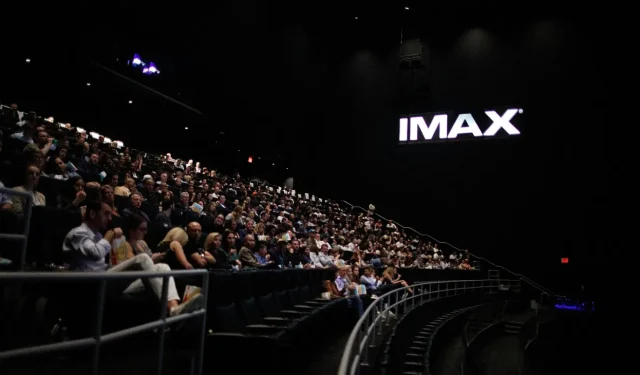Upcoming Release of Thunderbolts in China
The Marvel Cinematic Universe’s much-anticipated film, Thunderbolts, is preparing to premiere in Chinese theaters on April 30, just two days before its North American debut on May 2.
Impact on Imax Amid Trade Tensions
This development presents promising prospects for Imax, which relies heavily on Hollywood films to sustain its business operations in China—the second-largest film market in the world. However, amid the escalating trade tensions and tariff disputes initiated by U.S. President Trump, concerns are rising over possible ramifications for Imax related to a potential boycott of Hollywood movies by China.
Analyst Insights on Market Implications
The consensus among analysts suggests that the ramifications for Imax may be minimal. The company has diversified its offerings and is well-positioned to adapt, even if local language films gain prominence on its screens in China. According to Imax China’s recent quarterly report, the company achieved a remarkable $167 million in box office revenues, largely driven by successful local language films, including the acclaimed animated feature Ne Zha 2.
“From a financial standpoint, restrictions placed on U.S. produced movies are unlikely to have a meaningful impact,” stated Roth analyst Eric Handler in an investment note. “In a normalized year, Imax generates approximately $100 million of gross box office in China from Hollywood movies. In the event of a Hollywood ban, we estimate programming substitutions from either local content or other international imports could reduce the Hollywood exposure by half, to $50 million.”
Speculation Surrounding Movie Import Policies
In light of recent social media reports from a Xinhua News Agency correspondent, speculation has arisen regarding a potential ban on U.S. film imports as a form of retaliation against American tariffs. However, analysts advise caution, noting that such reports remain unconfirmed by other media outlets in China. Furthermore, indications from the China Film Bureau, responsible for regulating the exhibition industry, suggest no immediate changes to existing policies concerning U.S. films.
Market Dynamics and Future Outlook
Market analyst Mike Hickey of Benchmark Equity Research believes that a complete ban on major Hollywood releases in China is unlikely. The Chinese film market’s reliance on multiplexes to foster consumer spending and support its fragile real estate sector plays a crucial role in this assessment.
“Ongoing approvals of foreign releases and recent record box office numbers signal confidence among regulators in sustaining a dynamic market rather than severing key content sources,” Hickey remarked in his investment note.
Local Productions Rise to the Challenge
The monumental success of Ne Zha 2, which has garnered over $1.1 billion in global box office revenue, serves as a reassuring indicator for Imax in the event that a ban on U.S. films materializes. Hickey further emphasized that even if such a ban occurs, local films—which already secure a significant share of China’s box office—are poised to offset any potential disruptions. Thus, while revenue and profit margins may see an impact, the overall consequences would likely remain manageable, reflecting the growing strength of local cinema within one of the world’s largest film markets.


